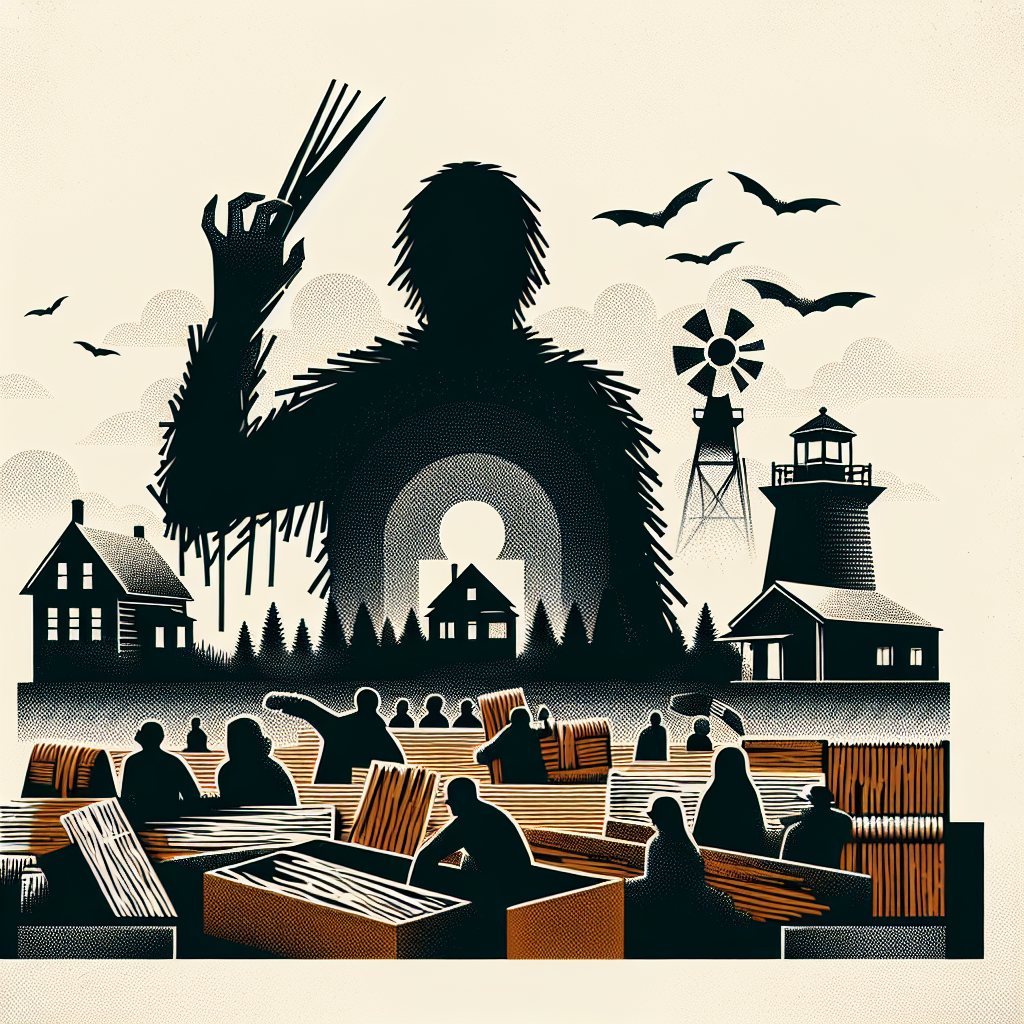Unveiling The Wicker Man (1973): A Disturbing Classic That Redefined Horror Cinema
Introduction:
"The Wicker Man," released in 1973 and directed by Robin Hardy, stands as a harrowing, multifaceted, and profound work of cinematic art. This British film, often classified within the horror genre, extends beyond mere scares, delving into psychological terror, folklore, and the deeply unsettling. Its significance in cinema history is immense, notably for how it redefined horror and influenced filmmakers for decades.
Cinematic Significance:
Unlike conventional horror movies of its time, "The Wicker Man" eschews gore and jump scares, opting instead for a slow-building, unnerving tension rooted in its disturbing subject matter and evocative settings. The film’s innovative blend of psychological horror, musical elements, and folk traditions has made it a quintessential piece of British cinema, often described as "The Citizen Kane of horror movies."
Main Themes:
One of the central themes of "The Wicker Man" is the clash between paganism and Christianity, embodied in the conflict between the devoutly Christian Sergeant Neil Howie and the pagan residents of Summerisle. This theme is not just religious but also philosophical, questioning the nature of belief, faith, and the lengths to which individuals will go to preserve their own dogmas.
The theme of civilization versus nature is also prevalent. Summerisle, with its lush landscapes and agrarian lifestyle, represents a return to more primal, naturalistic roots, setting the stage for a critique of modernity and its alienation from nature. This tension amplifies the horror, as viewers are made to reconsider the allure and danger of returning to "simpler" times.
Character Arcs:
Sergeant Neil Howie, portrayed by Edward Woodward, undergoes a transformation from a confident law enforcer to a tragic, almost Christ-like sacrificial figure. Howie’s journey is marked by his growing realization of the town’s true nature and his own vulnerability. His strict adherence to his faith and police duty makes his downfall both inevitable and poignant, underscoring the film’s tragic undertones.
Lord Summerisle, played with chilling charisma by Christopher Lee, serves as both antagonist and a spokesperson for the island’s ancient beliefs. His character is complex, blending charm and menace seamlessly. He is not depicted as a simple villain but rather as a true believer in his way of life, which offers a form of moral ambiguity rarely seen in horror cinema of the era.
Cinematic Techniques:
The film uses a variety of cinematic techniques to build its unique atmosphere and narrative style. Hardy employs natural lighting and on-location shooting to give the island an authentic, almost documentary-like feeling. The pastoral beauty of Summerisle contrasts starkly with the film’s darker undercurrents, creating a lingering sense of foreboding.
The soundtrack, consisting of traditional folk songs, plays a crucial role in establishing the film’s unsettling mood. Songs like "Willow’s Song" blend haunting melodies with lyrical content that hints at the islanders’ true nature, further heightening the film’s eerie atmosphere. The use of music in "The Wicker Man" is not just a background element but a narrative device that deepens character insights and foreshadows plot developments.
The climactic scene, where Howie meets his fate within the titular wicker man, is a masterclass in tension and horror. The juxtaposition of the serene setting sun against the horrific act being performed encapsulates the film’s dichotomy of beauty and terror.
Cultural and Social Reflections:
"The Wicker Man" also serves as a social commentary on the 1970s cultural milieu. The era’s fascination with the occult, the rise of New Age spiritualism, and a growing environmental consciousness are all mirrored in the film. The residents of Summerisle embody a countercultural rejection of modern Western values, opting for a pagan lifestyle that is both appealing and horrifying.
This cultural reflection serves to critique the idea of utopia, suggesting that any ideological extreme can lead to barbarity. In this way, the film is a cautionary tale about the dangers of fanaticism, whether religious, cultural, or ideological.
Legacy and Influence:
The lasting legacy of "The Wicker Man" is seen in its profound influence on subsequent films and filmmakers. Its approach to horror, focusing on psychological and existential dread, can be felt in works like "Hereditary" (2018) and "Midsommar" (2019), which also blend folk traditions with modern personal horror. The film has inspired countless parodies, homages, and reinterpretations, proving its persisting relevance.
Furthermore, "The Wicker Man" has entered popular culture as a quintessential example of British horror, with its chilling climax immortalized as one of cinema’s most unforgettable moments.
Conclusion:
Reflecting on "The Wicker Man" today, one must consider its relevance in the contemporary world. How do our beliefs shape our reality and actions? To what extent are we willing to go to protect or impose our ideals on others? These questions resonate profoundly in today’s global landscape, marked by religious, cultural, and ideological conflicts.
"The Wicker Man" endures not just as a horror classic but as a thought-provoking piece of art that challenges viewers to confront their own values and the potential extremes of human nature. It remains a powerful reminder of the thin line between the civilized and the primal, the rational and the superstitious. What does this say about us, and how might it inform our understanding of the many ‘islands’ of belief in our world today? As we watch or rewatch this disturbing classic, it invites us to reflect on these critical issues, making its lasting impact all the more significant.
Got more questions? Our personalized Movies Explorer AI assistant is here to help. Click here to start a conversation!
[Advertisement]
Looking for deeper meaning in your favorite movies? Discover how ANY movie relates to positive biblical principles with Movies and Scripture GPT from BGodInspired.com. Click here to explore insights you might not have realized! . Simply key in any movie and let it show you insights you might not have realized otherwise!
[Advertisement]

